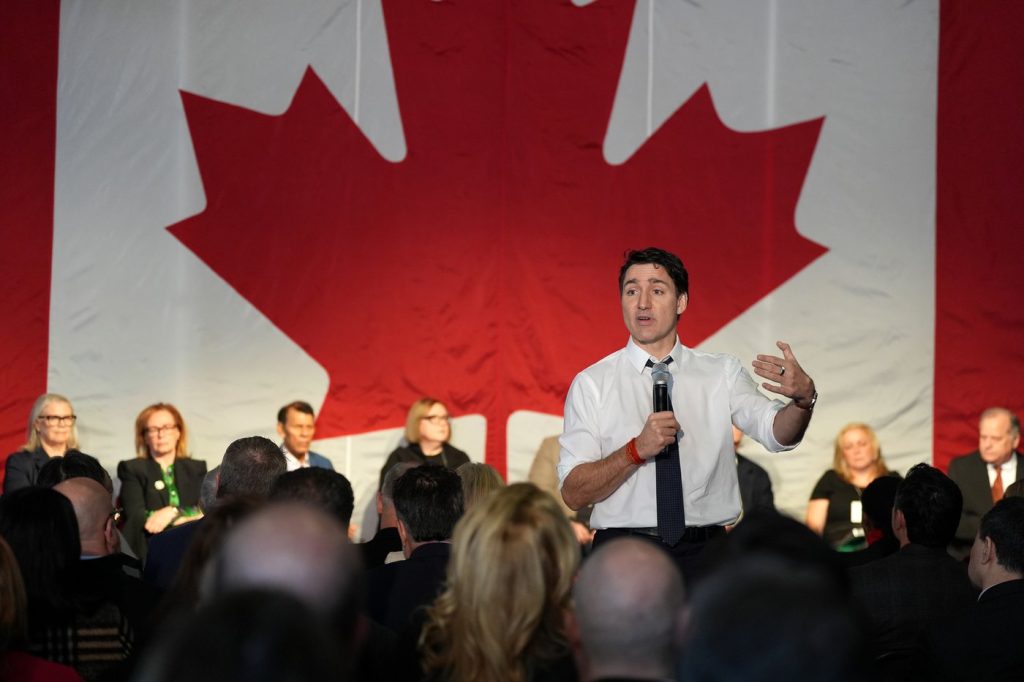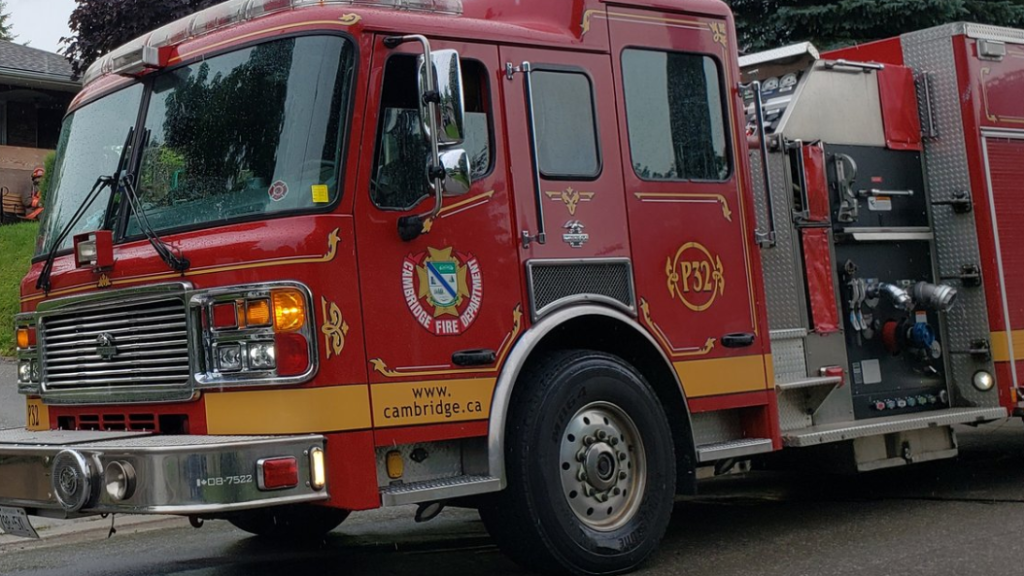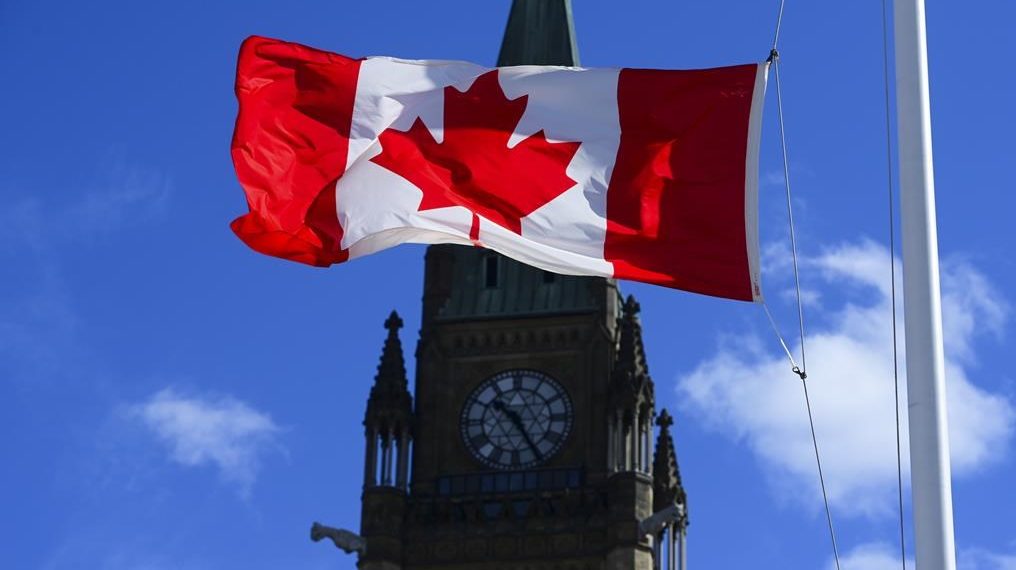Trump slaps Canada with 25% tariffs on goods, 10% on oil starting Tuesday, warns against retaliation
Posted Feb 1, 2025 06:00:15 AM.
Last Updated Feb 1, 2025 10:47:21 PM.
U.S. President Donald Trump made good on his tariff threat on Saturday, declaring an economic emergency to impose a 25 per cent tariff on Canadian goods and a 10 per cent tariff on energy, which includes natural gas, oil and electricity.
The White House says the levies will take effect on Tuesday, February 4. Trump’s order also includes a mechanism to escalate the rates if the countries retaliate against the U.S., as they have threatened.
A statement from the White House says the tariffs are being placed on Canada until it “cooperates with the U.S. against drug traffickers and on border security.”
“There is growing production of fentanyl in Canada, and enough fentanyl was seized at the northern border last fiscal year to kill 9.8 million Americans,” reads the statement posted to social media. “Additionally, illegal border crossings from Canada reached historic new highs every year for the last four fiscal years.”
A senior administration official, insisting on anonymity to brief reporters, did not provide specific benchmarks that could be met to lift the new tariffs, saying only that the best measure would be fewer Americans dying from fentanyl addiction.
The official said the lower rate on energy reflected a desire to minimize any disruptive increases on the price of gasoline or utilities. That’s a sign the White House understood as outside economists have warned that the import taxes if sustained could dramatically increase inflation, a possible problem for Trump as he promised to tame inflation after public unhappiness with price spikes under former President Joe Biden.
The order would also allow for tariffs on Canadian imports of less than $800. Imports below that sum are currently able to cross into the United States without customs and duties.
The order signed by Trump contained no mechanism for granting exceptions, the official said, a possible blow to homebuilders who rely on Canadian lumber as well as farmers, automakers and other industries.
Prime Minister Justin Trudeau announced 25 per cent immediate counter-tariffs on American goods worth $30 billion starting Tuesday and an additional $125 billion in duties on American products 21 days later.
Energy Minister Jonathan Wilkinson said in a post on social media that “Canada has done nothing to provoke tariffs.”
“But I want to reassure each and every Canadian: no matter who you are or where you live, we are prepared and ready to fight for you,” said Wilkinson, who recently travelled to Washington to meet with Republican lawmakers.
Premiers have disagreed on how Canada should respond if Trump follows through on his threats.
Alberta Premier Danielle Smith says she is disappointed by the looming tariffs on Canadian goods, including 10 per cent on Canadian energy.
Posting on social media, Smith claims the reduced tariff for energy was in part a recognition of her government’s advocacy.
Smith has pursued diplomacy in the face of tariff threats, including visiting Trump’s Florida home and Washington to defend cross-border energy trade.
The United States imported almost 4.6 million barrels of oil daily from Canada in October, according to the Energy Information Administration.
CALLS FOR SWIFT RETALIATION
Ontario Progressive Conservative Leader Doug Ford said in a statement Saturday that he was “extremely disappointed” by Trump’s actions, reiterating his support for a “strong and forceful response” by the federal government.
“I wish we weren’t here. I wish Ontario and Canada were working together with our American friends and allies to make our two countries the richest, most successful, safest, most secure on the planet,” said Ford. “Instead, President Trump has chosen to move forward with tariffs that will only hurt America and make Americans poorer. Canada now has no choice but to hit back and hit back hard.”
Federal Conservative Leader Pierre Poilievre condemned the “massive, unjust and unjustified tariffs on Canada’s already weak economy” in a press release.
Poilievre reiterated his calls for Parliament’s return, advocating for dollar-for-dollar tariffs, an emergency tax cut and other measures to support businesses, workers and the economy.
NDP leader Jagmeet Singh is calling on the federal government to protect workers as it responds to the incoming tariffs from the U.S.
“It is urgent that the government is ready to put financial help into the hands of workers who are impacted, and that we protect as many jobs as possible with a strong commitment to buy Canadian,” he says in a statement.
Liberal leadership candidate Mark Carney issued a statement, calling the tariffs a clear violation of our trade agreements which require “the most serious trade and economic responses in our history.”
“Canada will not bow down to a bully. We won’t stand by as illegal US tariffs hurt our workers and their families. As Canadians, we need to face this challenge as one united team,” said Carney.
“I support dollar-for-dollar retaliatory tariffs aimed where they will be felt the hardest in the United States but will have the least impact in Canada. At the same time, we need a coordinated strategy to boost investment and to support our Canadian workers through what will be a difficult moment.”
Canada’s largest private sector union has called for swift retaliation for declaring a “trade war” against Canada and Canadian workers.
“Trump’s decision to go to battle with America’s largest trading partner will hurt working people on both sides of the border and inflict real economic damage to both countries,” said Unifor National President Lana Payne.
“I believe Trump has underestimated Canadians. He has failed to realize that he has enraged and united an entire nation that is ready to fight to defend every last job in this country,” said Payne. “We will never forget this act of hostility against our workers, and we must take every measure possible – utilize every ounce of creativity we have – to build a strong, resilient, and diverse economy to never be held hostage by America again.”
Aside from a retaliatory response, Unifor is calling for other measures including Buy Canadian protocols, leveraging procurement policies to support Canadian jobs and industries as well as enhanced income supports for workers and emergency relief programs to mitigate the risk of layoffs and sustain companies in their operations.
IMMEDIATE AND DIRECT CONSEQUENCES
The tariffs will have immediate and direct consequences on Canadian and American livelihoods, said Canadian Chamber of Commerce President Candace Laing.
“This decision makes no sense when the majority of Americans oppose tariffs, when it harms businesses and workers on both sides of the border, and when the U.S. stock market is signalling that there’s no appetite for disruption,” Laing said in a statement Saturday.
The Canadian Federation of Independent Business said the tariffs are “deeply disappointing and will hit small businesses hard on both sides of the border.”
The CFIB said in a statement that just over half of Canada’s small businesses are involved in importing or exporting directly to the United States.
Uncertainty caused by the looming threat of tariffs has already stalled business investment, said Scott Crockatt at the Business Council of Alberta, earlier Saturday.
“They can’t justify spending the kind of money that would lead to expansion and job creation in an environment where they’re just not sure what will come next — and this period of uncertainty keeps stretching out,” he said.
Crockatt cautioned the Canadian government against any “knee jerk” reaction that could hurt Canada further, including counter tariffs or embargoes on energy.
Foreign Affairs Minister Mélanie Joly, Public Safety Minister David McGuinty and Immigration Minister Marc Miller met with Republican officials, including Trump’s border czar Tom Homan, in the United States capital throughout the week in a last-ditch attempt to avert the tariffs.
The ministers shared Canada’s $1.3-billion border security plan, implemented to ease Trump’s concerns. Miller said they also explained facts about the small volume of people and drugs illegally crossing the Canada-U.S. border.
It’s unlikely boosting the border would have made a difference to the president. Trump said Friday that there were no concessions that would stop Canada, Mexico or China from being hit with the levies.
Responding in a social media post, Mexican President Claudia Sheinbaum said she had instructed her economy secretary to implement a response that includes retaliatory tariffs and other measures in defense of Mexico’s interests.
“We categorically reject the White House’s slander that the Mexican government has alliances with criminal organizations, as well as any intention of meddling in our territory,” Sheinbaum wrote.
“If the United States government and its agencies wanted to address the serious fentanyl consumption in their country, they could fight the sale of drugs on the streets of their major cities, which they don’t do and the laundering of money that this illegal activity generates that has done so much harm to its population.”
Trump has said that the government should raise more of its revenues from tariffs, pushing aside concerns from economists that duties could stoke inflation after the Republican president campaigned on making life more affordable for Americans.
Scott Bessent, Trump’s treasury secretary, has said the president utilizes tariffs in three ways: to remedy unfair trade practices; to raise revenue for the federal government, and as a negotiating tactic.
Experts have said the duties are likely a first step in Trump’s plan to rattle Canada and Mexico ahead of a mandatory review of the Canada-U.S.-Mexico Agreement. The trilateral pact was negotiated to replace the North American Free Trade Agreement under the first Trump administration.
During negotiations in 2018, Trump floated the idea of a 25 per cent tariff on the Canadian auto sector, but it was never implemented. However, he did use his national security powers to impose a 25 per cent tariff on steel and a 10 per cent tariff on aluminum imports.
Canada and Mexico were eventually able to negotiate exemptions.
— With files from Aaron Sousa and Lisa Johnson in Edmonton and The Associated Press








